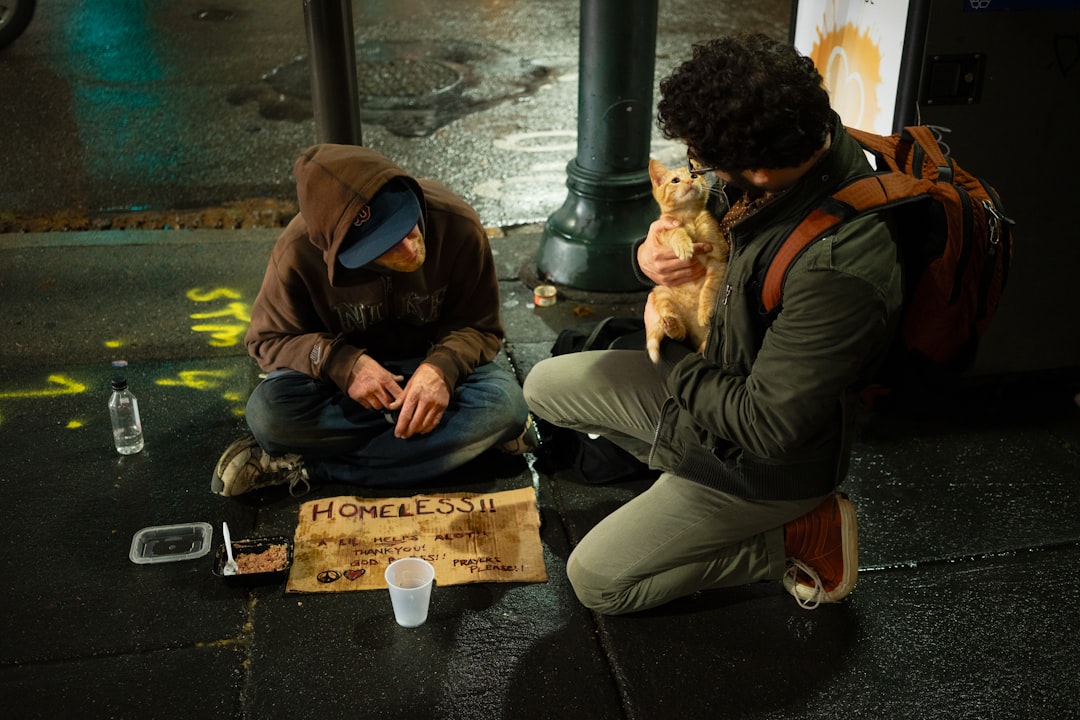California *Probably* Just Voted For Billions To Help Homeless People
Since when does throwing money at it get people homes?

California held its primary election last week, but as everyone knows, the state takes forever to count its mail-in ballots, so if an election is close, it can take a very long time for the final results to be decided. That’s what’s happening right now in the case of Proposition 1, a central part of Gov. Gavin Newsom’s plan to address the state’s chronic problem with homelessness. Prop 1 would fund a $6.4 billion bond, of which $4.4 billion would go to sharply increasing the availability of substance abuse treatment, while the rest would build permanent supportive housing for unhoused folks. Half of that would go to housing for veterans with mental illness or addiction.
With 85 percent of the vote counted, the “yes” vote leads “no” by just a bit more than 4,200 votes, a far closer tally than Newsom had predicted. That’s mostly due to record-low turnout for the primary, but also higher than usual Republican turnout, and as everyone knows Republicans say after every school shooting that we need more mental healthcare, as long as nobody has to pay for it.
Even with the vote count so close, the organizers of the “Californians Against Prop 1” campaign conceded Tuesday that the measure was likely to pass, since most of the remaining uncounted votes were from Democrat-heavy Los Angeles and San Francisco.
Opposition to Prop 1 came from two different directions: Republicans, who argued that spending money to address homelessness is bad because can’t you just criminalize being homeless and burn all the camps, or at least build tent cities in the desert like Donald Trump wants? On a more concerning note, the LA Times explains that the measure was opposed by civil rights and disability advocacy groups because of
a last-minute change to Proposition 1 that allows counties to use the bond money for “locked facilities,” where patients cannot voluntarily leave.
American Civil Liberties Unions in California and League of Women Voters of California urged voters to reject the measure, arguing that community mental health services are more effective than institutionalization.
Supporters of Prop 1 say the bulk of the bond funds would still go to outpatient treatment, and argue that adding more than 11,000 treatment beds to the state’s resources would get treatment to people in need so they won’t end up in jail for various homelessness-related crimes.
Newsom argued that Prop 1 was worthwhile because it would get more people off the streets and into treatment.
The measure, he argued in an interview with The Times, addressed the most important issues to voters — crime, homelessness, substance abuse and mental health — and “90% of the boxes that unite the vast overwhelming majority of Californians.”
Early polling showed wide support for Prop 1, but as the election grew closer its support dropped. The disproportionate Republican turnout last week didn’t help the measure’s prospects either, although it’s still looking likely to squeak by.
So when will there be a final tally? By law, the totals have to be in by April 5, and assuming that it does pass, that should mean a significant boost in treatment help and housing for people experiencing chronic homelessness. San Francisco Mayor London Breed said in her recent “State of the City” speech that if Prop 1 passes and the “state opens the pipeline for new beds, San Francisco is ready and first in line” to add “hundreds more” treatment beds.
Of course, even if California is able to significantly reduce homelessness through expanded treatment and housing, you can rest assured that Fox News will continue to insist that both Los Angeles and San Francisco are several inches deep in discarded heroin needles and poop. You don’t just drop a popular idea that stirs up the deplorables.
[LAT / NYT / Politico / Photo: Gage Skidmore, Creative Commons License 2.0
Yr Wonkette is funded entirely by reader donations. If you can, please subscribe, or if a one-time donation works better for you, that works great for us, too!






Is it weird to anyone else that everybody has a 35mm-grade camera in their pocket at tall times and yet there are no more "UFO" pictures?
"...arguing that community mental health services are more effective than institutionalization."
Raging progressive guy here. This flat out has not worked. It is *not* more effective. The disproof is walking the streets in pain and a never ending psychotic nightmare. It has not worked since Ronald Reagan closed all (most) of the mental health institutions in the 1960s. The "community mental health services" never arrive, or are far less than what is needed, and being "voluntary", are basically ignored by the people who need it most.
When I was a teenager in the 1960s, I was a Red Cross Volunteer - back when they were called "Candy Stripers" for the striped smocks the girls wore. The boys like me had sport jackets with narrow blue stripes. Anyway, I worked for Dorthea Dix Mental Hospital in Raleigh, NC. Dix (1802-1887), according to Wikipedia, was an American advocate on behalf of the indigent mentally ill who, through a vigorous and sustained program of lobbying state legislatures and the United States Congress, created the first generation of American mental asylums in the late 19th century. In other words, she got the victims of schizophrenia, alcohol deliriums, acute and chronic psychosis and other clearly debilitating mental illnesses out of the ditches, underpasses, alleyways, trash heaps and the other places they were forced to live in, and got them into a hospital setting - a *hospital* not fucking Beldam asylum. Dix got people *out* of places like that. She wanted to treat mental illness as an *illness* - sound familiar?
Ok, so there I am, working in a dormitory setting that is not unlike the room from 'One Flew Over The Cuckoo's Nest' - except there was no Nurse Ratchet, no evil doctors, no "punishments", no uppity patients "treated" with shock therapy. It was a hospital ward. I was with the acute patients, and as was pointed out in that movie, most were there voluntarily. They were just very disturbed men who couldn't handle the real world. In *today's* real world, they would all be walking the streets, living in poverty, in despair and in pain, no "community mental health services" (that basically don't exist) to help them. Having experienced that old system, as created by Dorothea Dix, from over 50 years ago before the hospitals were closed and the patients dumped on the streets, I can tell you those kind of patients are no better off today - in fact, *way* worse off.
Now, the "chronics" - the ones so severely mentally ill that they simply cannot function in society. Where are they today? Walking the city streets, raging loudly and picking their skin for invisible spiders. OR... they are in prison, because our society has nowhere else to put them.
Prop 1 is doing the right thing, and I will die on this hill.